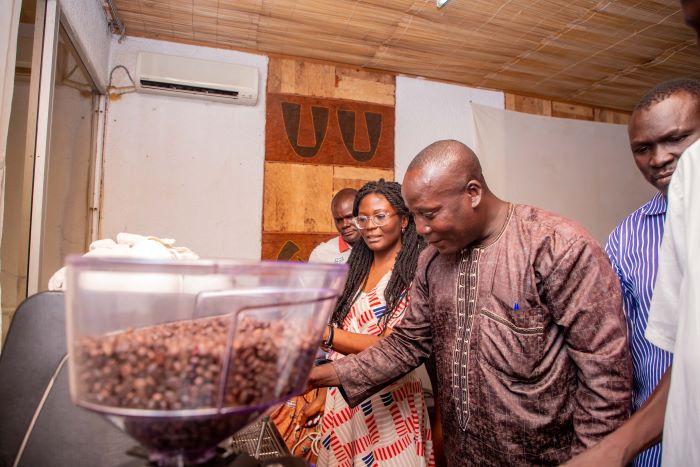How Cameroon National Cocoa and Coffee Board Ensures Quality Control
The Cameroon National Cocoa and Coffee Board ( NCCB) plays a pivotal role in the country's economy, as cocoa and coffee are major export commodities. To maintain its reputation in the global market, the NCCB implements rigorous quality control measures. This article explores the various strategies and initiatives undertaken by the NCCB to ensure the production and export of high-quality cocoa and coffee.

Quality Standards and Certification:
The NCCB establishes and enforces strict quality standards for cocoa and coffee production. Farmers and producers must adhere to these standards to be eligible for certification. The certification process involves periodic inspections, sample testing, and audits of farming practices and processing facilities. Only products meeting the set quality criteria receive the coveted certification, which enhances their marketability and value.
Training and Education:
To improve the overall quality of cocoa and coffee production, the NCCB provides training and educational programs to farmers and producers through cooperatives. These programs focus on best agricultural practices, post-harvest handling, and processing techniques. By equipping farmers with up-to-date knowledge, the NCCB ensures that they are well-informed about quality requirements and can implement them effectively.
Quality Testing Laboratories:
The NCCB maintains a state-of-the-art quality testing laboratory in Douala, the economic capital of Cameroon, equipped with advanced technology. This recently revamped and equipped laboratory conducts comprehensive tests on cocoa and coffee samples to assess their flavor, aroma, moisture content, and other crucial quality parameters. The data obtained from these tests is utilized to make informed decisions about the acceptance or rejection of product batches.
Promotion of Good Agricultural Practices:
The NCCB encourages the adoption of Good Agricultural Practices (GAP) among farmers. These practices encompass sustainable farming methods, proper fertilization, pest control, and water management. By promoting GAP, the NCCB aims to enhance crop yield and quality while minimizing the negative environmental impacts of cocoa and coffee production.
Monitoring and Enforcement:
The NCCB regularly monitors the activities of farmers, cooperatives, and processing units to ensure compliance with quality standards. Any violations or deviations are promptly addressed, and appropriate corrective actions are taken. Strict enforcement of quality regulations fosters a culture of quality consciousness throughout the supply chain.
Research and Development:
To stay ahead in an ever-evolving industry, the NCCB invests in research and development. This includes conducting studies to identify and implement innovative techniques that can enhance the quality of cocoa and coffee production. Additionally, research helps the NCCB to adapt to changing market demands and consumer preferences.
Conclusion:
The National Cocoa and Coffee Board's commitment to quality control is evident through its multifaceted approach. From setting stringent standards and providing education to implementing traceability systems and investing in research, the NCCB ensures that only the finest cocoa and coffee products reach the global market. By maintaining high-quality standards, the NCCB not only strengthens its position in the industry but also contributes to the sustainable growth of the country's cocoa and coffee sectors.


